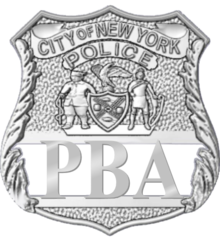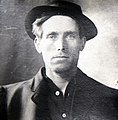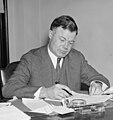
Introduction

- In trade unions, workers campaign for higher wages, better working conditions and fair treatment from their employers, and through the implementation of labour laws, from their governments. They do this through collective bargaining, sectoral bargaining, and when needed, strike action. In some countries, co-determination gives representatives of workers seats on the board of directors of their employers.
- Political parties representing the interests of workers campaign for labour rights, social security and the welfare state. They are usually called a labour party (in English-speaking countries), a social democratic party (in Germanic and Slavic countries), a socialist party (in Romance countries), or sometimes a workers' party.
- Though historically less prominent, the cooperative movement campaigns to replace capitalist ownership of the economy with worker cooperatives, consumer cooperatives, and other types of cooperative ownership. This is related to the concept of economic democracy.
The labour movement developed as a response to capitalism and the Industrial Revolution of the late 18th and early 19th centuries, at about the same time as socialism. The early goals of the movement were the right to unionise, the right to vote, democracy and the 40-hour week. As these were achieved in many of the advanced economies of western Europe and north America in the early decades of the 20th century, the labour movement expanded to issues of welfare and social insurance, wealth distribution and income distribution, public services like health care and education, social housing and common ownership. (Full article...)
Selected article

The Police Benevolent Association of the City of New York (PBA) is the largest police union representing police officers of the New York City Police Department. It represents about 24,000 of the department's 36,000 officers.
The PBA was originally called the Patrolmen's Benevolent Association. On January 14, 2019, it changed its name to the gender-neutral Police Benevolent Association of the City of New York. (Full article...)
December in Labor History
Significant dates in labour history.
- December 01 - W. A. Boyle was born; the Federated Ship Painters and Dockers Union was dissolved
- December 02 - The Professional Footballers' Association was founded
- December 03 - Tom Mooney died
- December 04 - The American Federation of Labor and Congress of Industrial Organizations were dissolved; George L. Berry died; the 2007 South Africa miners' strike occurred
- December 05 - The American Federation of Labor and Congress of Industrial Organizations merged to form the AFL–CIO
- December 06 - Santa Marta massacre occurred in Colombia in 1928; the Bituminous coal strike of 1977–78 began in the U.S.; the Socialist Trade and Labor Alliance was founded
- December 07 - The International Union of Operating Engineers was founded; the Fiji Teachers Union was founded; Vere Bird was born
- December 08 - Federation of Organized Trades and Labor Unions disbanded to from the American Federation of Labor; Anil Moonesinghe died; Bernice Fisher was born
- December 09 - Thomas Hepburn died; the International Federation of Building and Wood Workers was dissolved; Bob Hawke was born; Selig Perlman was born; Pablo Iglesias died
- December 10 - Jean Maitron is born; the American Federation of Teachers won its first collective bargaining election
- December 11 - The Union of Democratic Mineworkers was founded
- December 12 - Ron Carey died; Michael Ratchford died; Anthony Provenzano died; Charles Ballam died; Tommy Lewis was born
- December 13 - Samuel Gompers died; Bernard Kleiman died; William Spence died; the U.S. Supreme Court decided United States v. Wheeler
- December 15 - George Hardy was born; George W. Taylor died; Chico Mendes was born; Mark Hewitson was born; Clinton Jencks died
- December 16 - The Rothbury riot occurred in 1929 in Australia
- December 17 - Clarence Gillis died; Mustafa al-Hallaj died
- December 18 - The Transport and General Workers' Union and Amicus voted to merge into a new union, Unite, in 2006; the Cincinnati Federation of Teachers was formed; the Supreme Court of Canada issued its landmark ruling in RWDSU v. Dolphin Delivery Ltd.; Douglas Fraser was born; Randi Weingarten was born
- December 19 - Frank Keys Foster was born; the Ford Strike of 1945 in Canada ended; B. T. Ranadive was born
- December 20 - The 2005 New York City transit strike began; two of the Sydney Twelve were executed in Australia in 1916; the Supreme Court of Canada issued its landmark ruling in Dunmore v. Ontario (Attorney General); the Occupational Safety and Health Act became law in the U.S. in 1970; Richard Cordtz was born
- December 21 - William Usery Jr. was born
- December 22 - Chico Mendes died; the 2005 New York City transit strike ended
- December 23 - 1929 Australian timber workers' strike began; Gunnar Sträng was born; Derek Simpson was born; Ella Vogelaar was born
- December 24 - Ed Boyce died; the Electrical Trades Union of Australia was formed; Italian Hall Disaster in 1913
- December 25 - Ed Hochuli was born; Bartholomew Ulufa'alu was born; Philip Vera Cruz was born
- December 26 - A series of general strikes began in 1996 in South Korea; Dave Beck died
- December 27 - Cyrus S. Ching died; Free Workers' Union of Germany was founded; William Konyha died; John La Rose was born; Makhan Singh was born
- December 28 - Agnes Nestor died
- December 29 - Flint sit-down strike began in 1936; the Indian Labour Organization was founded; Ted Theodore was born
- December 30 - Bill Tytla died
- December 31 - The International Typographical Union was dissolved; Joseph Yablonski was murdered on the orders of United Mine Workers president W. A. Boyle; John Garden died
More Did you know (auto-generated)
- ... that Ana Sigüenza was the first woman to be the general secretary of a national trade union center in Spain?
- ... that the murder of Luisa Lallana sparked a general strike in Rosario, Argentina?
- ... that Jennifer Bates led thousands of Amazon warehouse workers to petition a vote for a union in Bessemer, Alabama?
- ... that the British Tychon missile was developed from a Barnes Wallis concept to keep strike aircraft safe while dropping nuclear bombs?
- ... that 55,000 Berlin workers went on strike on 28 June 1916 to protest the arrest and trial of anti-war campaigner Karl Liebknecht?
- ... that Surinamese trade unionist Louis Doedel was involuntarily committed to a psychiatric hospital by the governor-general for 43 years?
Related Portals
Selected image
Selected Quote
I am directly opposed to it myself, but if it is a question of strike or you go into slavery, then I say strike until the last one of us drop into our graves."
|
— Mary Harris Jones. |
Did you know
- ...that trade unions in Argentina have traditionally played a strong role in the politics of the nation, with approximately 40% of workers in the formal economy being unionized?
- ...that Arnold Miller defeated W. A. Boyle in 1972 for the presidency of the United Mine Workers of America after Boyle murdered union reformer Joseph Yablonski?
- ...that scandal erupted after the Department of Justice initiated prosecution of Jackie Presser only to abruptly end it once the press revealed Presser had been an informant for the FBI for over 10 years?
Topics
Get involved
Also see our sister WikiProject, Housing and Tenant Rights!
Associated Wikimedia
The following Wikimedia Foundation sister projects provide more on this subject:
-
Commons
Free media repository -
Wikibooks
Free textbooks and manuals -
Wikidata
Free knowledge base -
Wikinews
Free-content news -
Wikiquote
Collection of quotations -
Wikisource
Free-content library -
Wikiversity
Free learning tools -
Wiktionary
Dictionary and thesaurus














































































